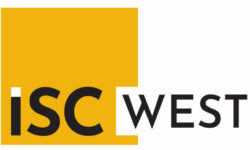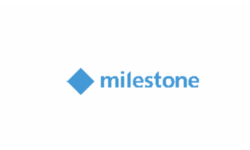Stanley Black & Decker Details Impact of COVID-19 on Q1 Results
Along with disrupting its bottom line, the COVID-19 crisis has apparently derailed the company’s plan to divest its Stanley Security business for now.

The company reported Q1 revenues of $3.1 billion, down 6% vs. the prior year, with a 7% organic decline Primarily attributed to impacts from COVID-19.
NEW BRITAIN, Conn. — Stanley Black & Decker (NYSE: SWK) on Thursday reported first-quarter earnings of $1.20 per share, beating the Zacks Consensus Estimate of $1.13 per share. This compares to earnings of $1.42 per share a year ago. The figures are adjusted for nonrecurring items.
Stanley Black & Decker posted total revenues of $3.1 billion for the quarter ended March 31, a 6% decline compared to the same period the prior year. The company said it experienced a 7% organic decline during the quarter primarily related to impacts from COVID-19, the disease caused by the novel coronavirus.
Total revenues missed the Zacks Consensus Estimate by 4.6%.
Gross margin rate for the quarter was 32.7%; excluding charges, the rate was 33%. This marks a 40-basis-point reduction from the prior year period as price, margin resiliency and other cost controls in late March were more than offset by lower volumes, higher manufacturing costs related to the virus, as well as currency and tariff headwinds. Higher manufacturing costs resulted from significant increases in personal protection equipment (PPE) and freight expenditures.
During an earnings call with investors Thursday, executives discussed the performance of its three operating segments — Tools & Storage, Industrial and Security.
Through mid-March, organic growth for the Security segment was close to 3% quarter-to-date; however, by the end of the quarter the segment had fallen 4% as organic growth shifted to a negative 2% for the full quarter, CFO Donald Allen explained on the call. This marked a five-point swing in two weeks as economies were shut down across the world and end customers were cautious in allowing Stanley Security technicians onsite as they postponed projects.
North America organic growth increased 2% as higher volume in automatic doors and healthcare were partially offset by lower installation and service revenue in commercial electronic security.
“Obviously, we are seeing customer accessibility limitations impacting our ability to complete installation orders in this environment,” Allen said.
Sales for the Security segment in Europe were down 1% organically due to customer restrictions in France and the United Kingdom, which more than offset solid growth in Sweden.
“The commercial momentum continued with strong order intake and a backlog that is up 20% versus last year,” Allen said. “As the restrictions lift in North America and Europe, we are in a good position to continue the organic growth momentum in Security.”
The overall the Security segment’s profit rate, excluding charges, was down 290 basis points to 7.4%, compared to 10.3% in the prior-year period. The decreased rate resulted as price and cost control were more than offset by lower volume in electronic security, investments to support growth and the impact from the Sargent & Greenleaf divestiture, Allen said.
The COVID-19 crisis impacted all Tools & Storage regions and strategic business units (SBUs). Power tools and equipment fell 3% as early momentum behind commercial execution and new product introductions were impacted by the pandemic.
Revenue from the Industrial segment increased 6%, which included 15 points from the acquisitions of IES Attachments and Boeing supplier CAM. Operating margin rate for the segment fell year-over-year to 13.2% as margin resiliency and cost controls were more than offset by the impact from lower volume and currency.
$1B Cost Reduction Plan
During the call company executives detailed a comprehensive cost reduction plan that is projected to deliver $500 million of savings in 2020 and $1 billion over the next 12 months. The company said the program’s primary focus is to:
- Adjust the supply chain and manufacturing labor base to match the current demand environment
- Substantially reduce indirect spending (currently ~$1.7B annualized)
- Reduce staffing, compensation & benefits in a manner that ensures the company is prepared for a demand recovery at the appropriate time
- Capture the significant raw material deflation opportunity
On April 2, the company withdrew its full year guidance as a result of the uncertain business environment across the globe. The company said substantial revenue declines can be expected to negatively impact 2020 results vs. prior guidance.
“From a revenue perspective, our planning models assume the potential for a 35% to 45% second quarter revenue decline, with the month-to-date April results tracking in that neighborhood,” Allen said.
He went on to explain the company has modeled multiple scenarios and currently assumes sequential improvement as the year unfolds, with a full-year range of 15% to 30% revenue decline, depending on the shape and the timing of the recovery.
Along with disrupting its bottom line, the COVID-19 crisis has apparently derailed the company’s plan to divest its Stanley Security business for now. In an earnings press release, the company stated it was “deferring the Security strategic review until after the environment stabilizes.”
If you enjoyed this article and want to receive more valuable industry content like this, click here to sign up for our FREE digital newsletters!

Security Is Our Business, Too
For professionals who recommend, buy and install all types of electronic security equipment, a free subscription to Commercial Integrator + Security Sales & Integration is like having a consultant on call. You’ll find an ideal balance of technology and business coverage, with installation tips and techniques for products and updates on how to add to your bottom line.
A FREE subscription to the top resource for security and integration industry will prove to be invaluable.














